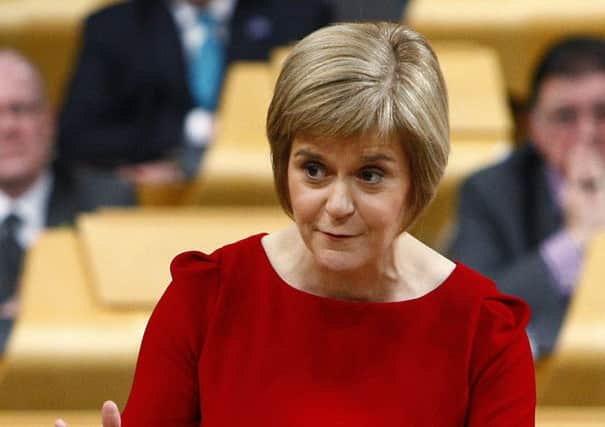All-women shortlists bid to end boardroom bias


First Minister Nicola Sturgeon wants to see the make-up of company directors to reflect the gender split in society by the end of the decade.
Countries around the world, including Norway, which use gender quotas, have achieved “higher levels” of success, new Scottish Government research has found. And it says Scotland still has a “considerable way to go” to achieve equality in the boardroom, with women accounting for just over a third (36 per cent) of all public boards.
Advertisement
Hide AdAdvertisement
Hide AdAlthough positive discrimination in the UK is unlawful, the report says international human rights law recognises “affirmative action” may be necessary to overcome past discrimination and “temporary special measures” could be introduced in the short-term, the report says. The Equality Act 2010 incorporates these treaties and has extended the provision for all-women party shortlists until 2030.
“Although the UK government position has been to support voluntary measures to improve gender equality in the boardroom, momentum is building from the European Parliament for the introduction of legislative measures to support improvements in gender balance in the boardroom,” the report says.
CONNECT WITH THE SCOTSMAN
• Subscribe to our daily newsletter (requires registration) and get the latest news, sport and business headlines delivered to your inbox every morning
This could mean a UK-wide approach is taken, because it is signed up to the UN Convention on the Elimination of Discrimination against Women (CEDAW), an international human rights treaty focusing on equality between men and women. The Equality Act 2010 extended provision for all-women shortlists until 2030.
Cabinet Secretary for Social Justice, Alex Neil, said: “We want a fair and equal Scotland for everyone. We are leading by example with a 50:50 gender balance in our cabinet and I am keen we now see all boards become more representative of our society. There is no doubt that businesses and organisations benefit if they have more diversity on their boards and this review of evidence gives us a good insight into the strategies and policies needed to make that happen.
“We want to work collaboratively to ensure women get a fair opportunity, and have the confidence, to apply for more positions on boards and achieve our aim of fully balanced, representative Boards by 2020.”
The review by Napier University, and for the Scottish Government, says shortcomings in the way women are appointed to the boards of private companies needs to be addressed.
“Existing board members appoint those in their own image,” the report states. “This undermines the independence and oversight function of boards as new talent and fresh perspectives are squeezed out.”
Advertisement
Hide AdAdvertisement
Hide AdIt is now calling for the “long list” of potential boardroom candidates to include at least three women. A target should also be set of at least 25 per cent of women board members by 2015.
SCOTSMAN TABLET AND IPHONE APPS